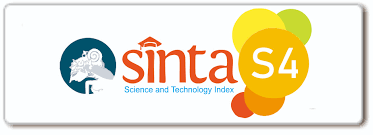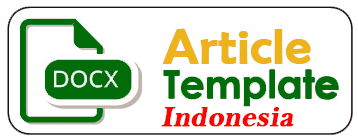Penerapan Assessment Of, For Dan As Learning Dalam Perkuliahan Di Perguruan Tinggi Keagamaan Islam Indonesia
DOI:
https://doi.org/10.47200/ulumuddin.v14i1.2371Keywords:
assessment of learning, assessment for learning, assessment as learning, Islamic Higher EducationAbstract
The research aims to describe (1) how assessment of learning (AoL), assessment for learning (AfL) and assessment as learning (AaL) are applied by lecturers in Islamic universities in Indonesia, (2) what steps of the AaL the lecturers take, (3) how the lecturers give feedback of the AaL to students in the sociocultural-regious context of Indonesia Islamic universities, and (4) what problems and solutions of applying the AaL. The research methodology is an explanatory sequential mixed-methods. The population is lecturers of Islamic universities in Indonesia and the sample is 108 lecturers by cluster random sampling. The lecturers applying the AoL, AfL and AaL unitedly and separately in high level are 10 (9,26%)—19 (17,59%) people, and those specifically applying the AaL are 10 (9,26%) people. Steps of the AaL taken by the lecturers are (1) writing and distributing teaching plans to students, (2) motivating students to do self-regulated learning, (3) asking students to assess student’s own learning outcome, (4) asking students to assess their colleagues’ learning outcome and (5) giving feedback to students. The lecturers give feedback to students in Indonesia Islamic universities. Problems of applying the AaL deal with the lectuers’ low understanding of the AaL and students’ low level of self-regulated learning.
Downloads
References
Akhtar, Hanif. “Cara Membuat Kategorisasi Data Penelitian dengan SPSS.” Artikel, 2018.
Azis, Astuti. “Conceptions and practices of assessment: A case of teachers representing Improvement conception.” TEFLIN Journal 26, no. 2 (2015): 129–54. https://doi.org/https://doi.org/10.15639/ teflinjournal.v26i2/129-154.
Baird, Jo-Anne, David Andrich, Therese N. Hopfenbeck, dan Gordon Stobart. “Assessment and learning: fields apart?” Assessment in Education: Principles, Policy & Practice 24, no. 3 (2017): 317–50. https://doi.org/https://doi.org/10.1080/0969594X.2017.1319337.
Blundell, Christopher N. “Teacher use of digital technologies for school-based assessment: a scoping review.” Assessment in Education: Principles, Policy & Practice 28, no. 3 (2021): 279–300. https://doi.org/https://doi.org/10.1080/0969594X.2021.1929828.
Chong, Sin Wang. “Three Paradigms of Classroom Assessment: Implications for Written Feedback Research.” Language Assessment Quarterly 15, no. 4 (2018): 330–47. https://doi.org/10.1080/ 15434303.2017.1405423.
Creswell, John W., dan Vicki L. Plano Clark. Designing and Conducting Mixed Methods Research. 3 ed. Thousand Oaks: SAGE Publications Inc., 2018.
Creswell, John W., dan J. David Creswell. Research Design: Qualitative, Quantitative, and Mixed Methods Approaches. 5 ed. Thousand Oaks: SAGE Publications Inc., 2018.
Dann, Ruth. “Assessment as learning: blurring the boundaries of assessment and learning for theory, policy and practice.” Assessment in Education: Principles, Policy & Practice 21, no. 2 (2014): 149–66. https://doi.org/https://doi.org/10.1080/0969594X.2014.898128.
Earl, Lorna M. “Assessment for Learning Assessment as Learning Changing Practices Means Changing Beliefs.” Assessment and Learning 2 (2013): 1–5.
Earl, Lorna M., dan Steven Katz. Rethinking Classroom Assessment with Purpose in Mind: Assessment for Learning, Assessment as Learning, Assessment of Learning. Manitoba: Minister of Education, Citizenship and Youth. Manitoba Education, Citizenship and Youth, School Programs Division, 2006.
EMIS. “Data Pendidikan Dikti.” Data Pendidikan Dikti, 2021.
Fadilla, Annisa Rizky, Suhardi Suhardi, dan Sudiati Sudiati. “Implementasi Penilaian Autentik Bahasa Indonesia Bermuatan Literasi Digital-Industri di SMK dalam Paradigma Kebijakan Edukasi 5.0.” Nuansa Akademik: Jurnal Pembangunan Masyarakat 8, no. 2 (1 Juni 2023): 277–98. https://doi.org/10.47200/JNAJPM.V8I2.1681.
Fitri, Agus Zaenul. Integrasi Pengembangan Keilmuan di Perguruan Tinggi Keagamaan Islam. 1 ed. Tulungagung: IAIN Tulungagung Press, 2020.
Islami, Faza, Busthomi Ibrohim, dan Azmi Islami. “Relasi Agama Dan Budaya Bangsa Dalam Gagasan Abdurahman Wahid Tentang Pribumisasi Islam.” Ulumuddin: Jurnal Ilmu-ilmu Keislaman 13, no. 2 (11 Juli 2023): 183–98. https://doi.org/10.47200/ ULUMUDDIN.V13I2.1771.
Lam, Ricky. “Assessment as learning: examining a cycle of teaching, learning, and assessment of writing in the portfolio-based classroom.” Studies in Higher Education 41, no. 11 (2016): 1900–1917. https://doi.org/10.1080/03075079.2014.999317.
Lee, Icy, Pauline Mak, dan Rui Eric Yuan. “Assessment as learning in primary writing classrooms: An exploratory study.” Studies in Educational Evaluation 62 (2019): 72–81. https://doi.org/https:// doi.org/10.1016/j.stueduc.2019.04.012.
Lukitasari, Marheny, Jeffry Handhika, dan Wasilatul Murtafiah. “Potensi E-Portofolio Sebagai Asesmen Alternatif di Perguruan Tinggi.” In Prosiding Seminar Nasional Hasil Penelitian LPPM Universitas PGRI Madiun, 7. Madiun: LPPM Universitas PGRI Madiun, 2017.
Madjid, Nurcholis. Karya Lengkap Nurcholish Madjid. Diedit oleh Buddy Munawar-Rachman, Elza Peldi Taher, dan M. Wahyuni Nafis. 1 ed. Jakarta: Nurcholis Madjid Society, 2019.
Malayati, Robi’ah Machtumah, dan Daniel Susilo. “Penitipan Handphone Sebagai Komunikasi Non Verbal Santri PPP Walisongo Desa Cukir Jombang.” Communication 11, no. 1 (2020): 94–111. https:// doi.org/https://dx.doi.org/10.36080/comm.v11i1.1010.g778.
Mulyatiningsing, Endang. Riset Terapan Bidang Pendidikan dan Teknik. Diedit oleh Apri Nuryanto. Yogyakarta: UNY Press, 2011.
Mutch, Carol. “Assessment for, of and as Learning: developing a sustainable assessment culture in New Zealand schools.” Policy Futures in Education 10, no. 4 (2012): 374–85. https://doi.org/https:// doi.org/10.2304/pfie.2012.10.4.374.
Nurhayati, Ria. “Analisis SWOT Pelaksanaan Perkuliahan Daring Pada Masa Pandemi COVID-19 di STAI Yogyakarta.” Nuansa Akademik: Jurnal Pembangunan Masyarakat 5, no. 1 (29 Juni 2020): 63–72. https://doi.org/10.47200/jnajpm.v5i1.916.
Panadero, Ernesto. “A Review of Self-regulated Learning: Six Models and Four Directions for Research.” Frontiers in Psychology 8 (2017): 1–28. https://doi.org/https://doi.org/10.3389/fpsyg.2017.00422.
Prihantoro, Agung, dan Toto Hermawan. “Success and Failure of English-as-a-Foreign-Language Lecturers in Applying the Assessment as Learning in Higher Education.” International Journal of Educational Spectrum 3, no. 2 (2021): 131–49. https://doi.org/ https://doi.org/10.47806/ijesacademic.896661.
Sekretariat Ditjen Pendidikan Islam. Buku Analisis Statistik Pendidikan Islam Tahun Pelajaran 2011/2012. Jakarta: Kemenag RI, 2013.
Wahid, Abdurrahman. Islamku Islam Anda Islam Kita: Agama Masyarakat Negara Demokrasi. Jakarta: The Wahid Institute, 2006.
Winstone, Naomi E., dan David Carless. “Who is feedback for? The influence of accountability and quality assurance agendas on the enactment of feedback processes.” Assessment in Education: Principles, Policy and Practice 28, no. 3 (2021): 261–78. https://doi.org/10.1080/0969594X.2021.1926221.
Downloads
Published
How to Cite
Issue
Section
License
Copyright (c) 2024 Agung Prihantoro, Fattah Setiawan Santoso, Hilman Haroen

This work is licensed under a Creative Commons Attribution-ShareAlike 4.0 International License.









